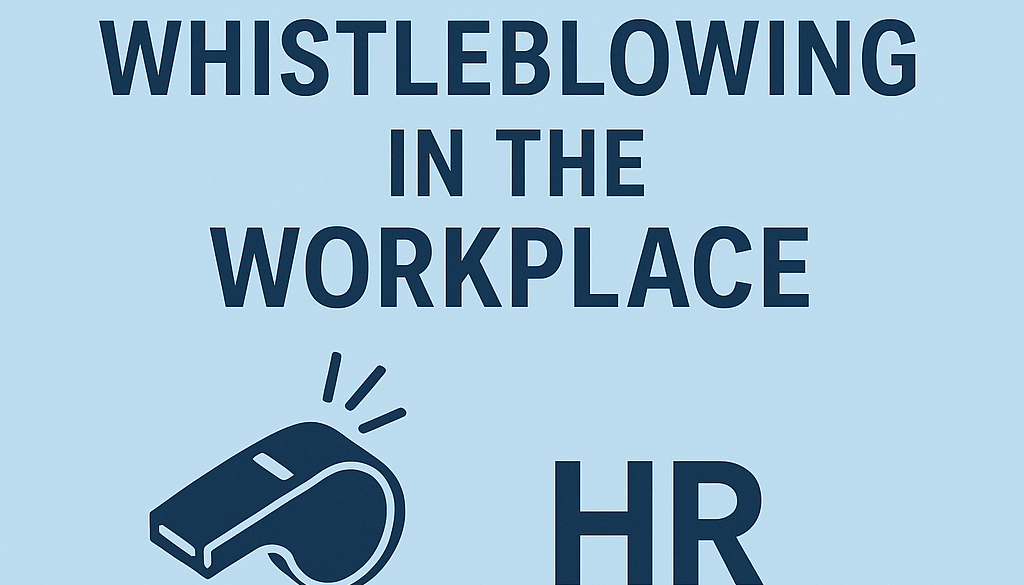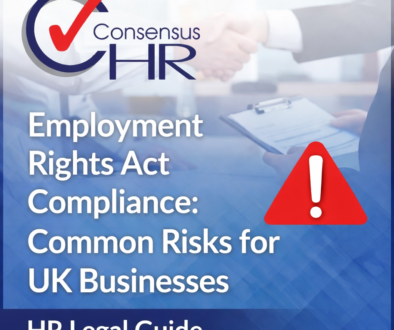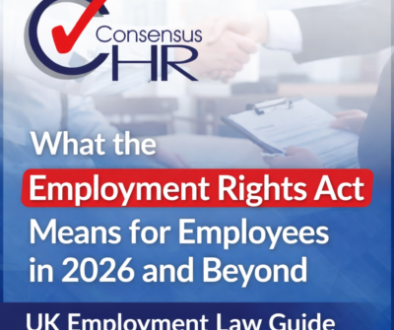🛡️ Strengthening Whistleblower Protections | Consensus HR in Herts & Beds
🛡️ Strengthening Whistleblower Protections in UK Workplaces
By Matthew Chilcott – July 2025
What’s Changing: New Whistleblower Measures in the Employment Rights Bill
Under the forthcoming Employment Rights Bill, due for Royal Assent around summer 2025, UK employers will face increased obligations around whistleblowing. Notably:
-
Explicit whistleblower protection for sexual harassment disclosures, expanding the current list of “qualifying disclosures” democracy.middevon.gov.uk+4consensushr.com+4consensushr.com+4thetimes.co.ukthetimes.co.uk.
-
A legal duty to investigate bullying and harassment complaints—something not previously required—thanks to a coalition amendment led by cross-party figures thetimes.co.uk.
-
Whistleblowing now officially recognised as a crucial part of harassment prevention, with disclosures of such incidents protected under law thetimes.co.uk+1thetimes.co.uk+1.
Why This Matters for Employers & Employees
| Stakeholder | Key Impact |
|---|---|
| Employees | Whistleblowers gain stronger legal safeguards, encouraging early reporting of misconduct, bullying, or harassment. |
| Employers | Mandatory investigation of all bullying/harassment complaints; failure to do so risks tribunal claims. |
| Organisational culture | Prompt, thorough investigations underpin trust, transparency, and proactive risk management. |
Insights from Matthew Chilcott (Owner, Consensus HR)
“With the expansion of protected disclosures to include harassment and a statutory duty to investigate, employers must take these complaints far more seriously than before,” says Matthew Chilcott, FCIPD.
He adds:
“This is not only about legal compliance—prompt investigation strengthens workplace culture, drives talent retention, and reduces risk storms before they hit.”
Chilcott highlights that these changes shift whistleblowing from a reactive to a strategic, preventative, and reputationally mindful stance.
Practical Steps for HR & Leadership Teams
-
Update whistleblowing policy
Ensure it addresses bullying, harassment, and sexual misconduct—not just fraud or health and safety—and outlines escalation and investigation processes. -
Train managers and investigators
Conduct workshops to cultivate awareness of new obligations: timely receipt, triage, impartial reporting, and investigative fuelling. -
Formalise reporting channels
Offer multiple safe routes (e.g. email, hotline, manager, independent HR or DPO) and confirm receipt and next steps transparently. -
Document and act
Keep clear records of submissions, decisions, actions taken, and outcomes. This supports legal defence and internal accountability. -
Review and monitor
Regularly audit how many complaints are received, how quickly they’re acted on, and whether outcomes are adequately communicated.
The Bigger Picture & Why It Matters
-
Legal accountability shift: Employers are no longer “permitted” but required to investigate—even if no harm was found.
-
Cultural transition: Early action builds trust, deters misconduct, and protects brand reputation.
-
Greater risk for avoidance: Cover-ups or dismissal of wrongdoing could result in tribunal claims and compensation awards—not to mention damaged public trust.
🔍 Final Thoughts
The Employment Rights Bill’s whistleblower provisions and expanded harassment protections represent a fundamental shift in organisational responsibility. With legal obligations now demanding action, transparency, and cultural change, HR leaders must act decisively. As Matthew Chilcott notes, “Being proactive isn’t optional—it’s essential for legal compliance and organisational health.”
Disclaimer: This article is for informational purposes only and not legal advice.
To view more about our range of HR & Employment Law Services
Are you concerned about keeping your business up to date with Employment Law changes?
Your Outsourced Human Resources (HR) Department.
For further information on any of the HR subjects we provide, please click the heading below:





